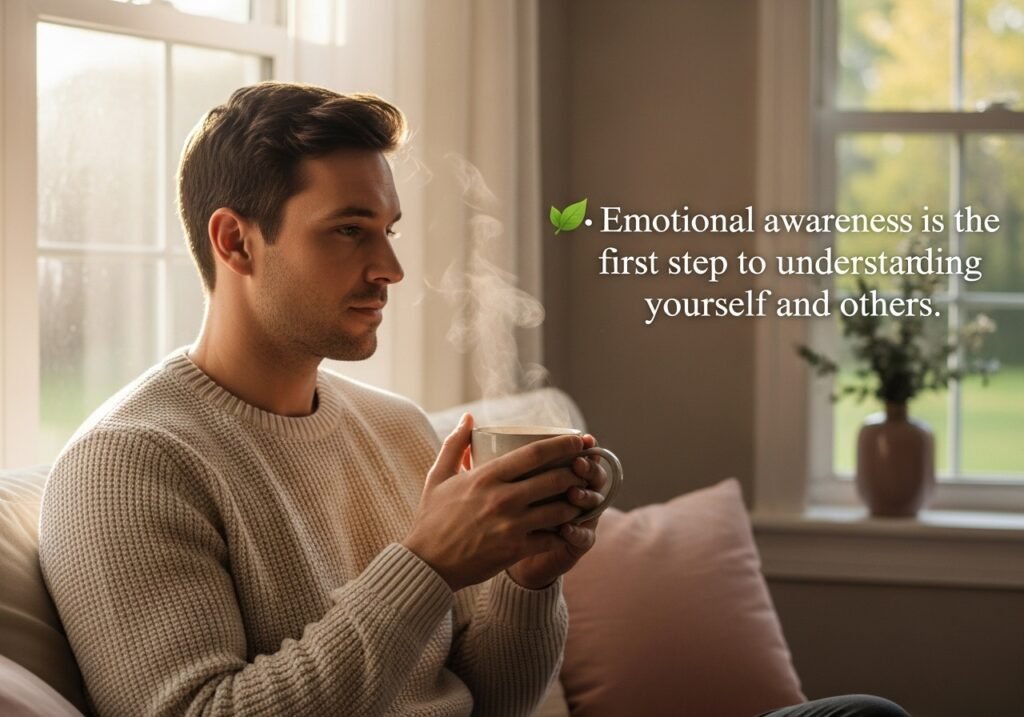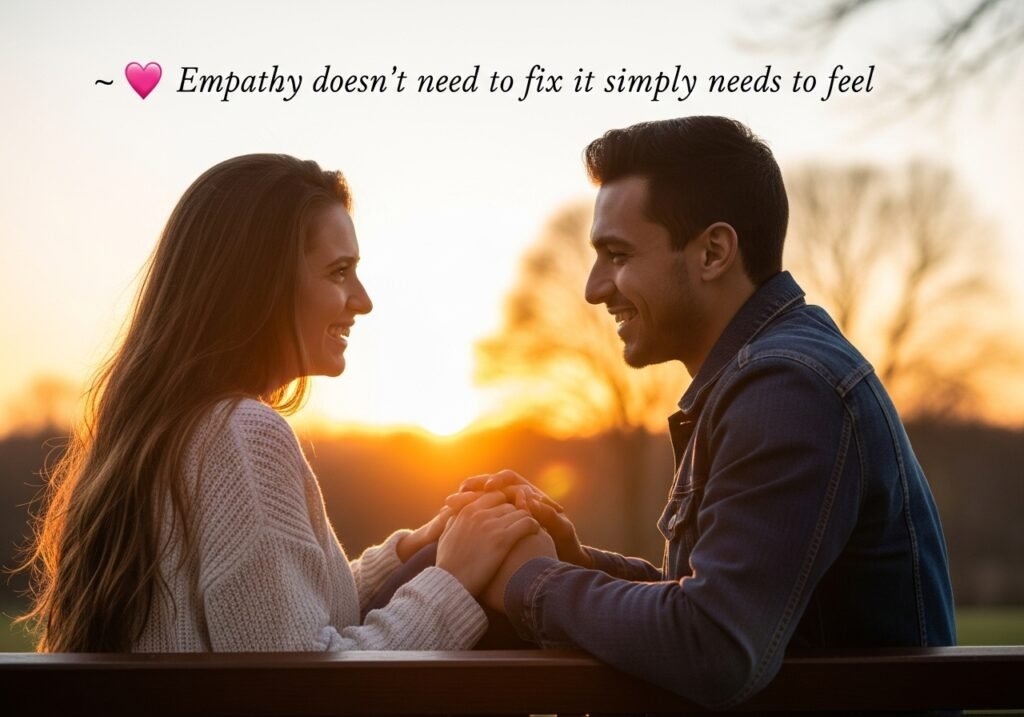Introduction
In today’s fast-moving world, relationships face challenges that go beyond physical presence or communication. What holds people together whether partners, friends, family, or coworkers is not just love or understanding but something deeper called emotional intelligence. Often referred to as EQ, emotional intelligence is the ability to recognize, understand, and manage one’s own emotions while also being aware of and empathetic toward the emotions of others. When emotional intelligence becomes part of a relationship, it transforms how people connect, communicate, and resolve conflict. It’s the secret language of compassion and understanding that makes every relationship more authentic and resilient.
Emotional Awareness Builds Understanding
At the foundation of every healthy relationship lies emotional awareness the ability to recognize your own feelings and those of the people around you. When individuals are aware of their emotions, they’re less likely to react impulsively or lash out during tense moments. For instance, if you know that you’re irritated because of work stress, you can choose to communicate that calmly rather than unintentionally snapping at your partner or friend. This awareness prevents unnecessary conflict and promotes peace. Emotional awareness also encourages empathy because when you understand your emotions, it becomes easier to understand the emotions of others. In families, awareness helps parents and children connect on a deeper level. In friendships, it nurtures trust and safety. In romantic relationships, it becomes the bridge that keeps love emotionally alive.

Empathy Deepens Connection
Empathy is the heart of emotional intelligence. It’s not about fixing someone’s problems but about feeling with them. Empathy allows you to listen without judgment and offer emotional support instead of quick solutions. When people feel genuinely heard and understood, they feel safe. This emotional safety is what creates lasting bonds. A friend who listens without interrupting, a partner who validates your feelings, or a sibling who sits beside you in silence when words fail all of these are examples of emotionally intelligent empathy in action. Empathy doesn’t erase differences, but it creates a bridge across them. It replaces misunderstanding with compassion and silence with connection.

Emotional Regulation Creates Balance
Emotional regulation is one of the strongest pillars of emotional intelligence. It’s not about suppressing your emotions; it’s about managing them so they don’t control your behavior. Relationships often break down when emotions run wild anger, jealousy, or insecurity can lead to impulsive words that cause lasting damage. People with strong emotional regulation skills can pause before reacting. They take a breath, think, and choose to respond calmly. This small moment of awareness can save hours of regret later. Emotional regulation transforms arguments into conversations and teaches both partners or friends how to communicate with maturity. In family or work relationships, this skill prevents power struggles and promotes cooperation. When you can stay grounded during conflict, others feel respected and heard, and solutions become easier to find.

Authentic Communication Builds Trust
One of the greatest gifts emotional intelligence brings to any relationship is authentic communication. It’s not just about talking it’s about understanding the deeper message behind the words. Emotionally intelligent communication involves honesty, clarity, and compassion. People with high EQ don’t avoid difficult conversations; they approach them with patience and respect. They know how to express what they feel without blaming or attacking. Instead of saying, “You never listen to me,” they might say, “I feel unheard when I try to share my thoughts.” This kind of language encourages dialogue instead of defensiveness. It allows others to feel safe enough to be honest, too. Trust naturally grows when both people feel they can communicate openly without fear of judgment or criticism.

Understanding Emotional Triggers Encourages Growth
Every person has emotional triggers sensitive spots that can cause strong reactions based on past experiences or insecurities. Emotional intelligence helps individuals identify these triggers and understand where they come from. Instead of blaming someone else for how you feel, EQ teaches you to take responsibility. You begin to notice patterns, like becoming defensive when criticized or shutting down when feeling ignored. Once you understand your triggers, you can communicate them clearly and ask for support instead of reacting with anger or withdrawal. This level of self-awareness turns conflicts into opportunities for growth. It also helps loved ones respond more kindly, knowing what you’re going through instead of misinterpreting your emotions. Over time, this shared understanding strengthens emotional intimacy.
Compassion and Forgiveness Strengthen Bonds
No relationship is perfect. Misunderstandings, mistakes, and hurt feelings are part of being human. But emotional intelligence teaches compassion the ability to see beyond someone’s behavior and understand their pain. When compassion becomes part of a relationship, forgiveness follows naturally. You begin to let go of resentment not because you’ve forgotten what happened, but because you value peace over anger. Forgiveness is not a sign of weakness; it’s a reflection of emotional maturity. In romantic partnerships, compassion rekindles love after disagreements. In friendships, it repairs trust. In families, it heals generational wounds. Through emotional intelligence, people learn that empathy and forgiveness can accomplish what pride and silence never could.

Emotional Intelligence Creates Lasting Harmony
The most beautiful outcome of emotional intelligence in relationships is lasting harmony. When two people can understand, manage, and respect each other’s emotions, their relationship becomes a source of peace rather than stress. Emotionally intelligent individuals value presence over perfection. They listen to understand, not just to respond. They practice vulnerability without fear, knowing that true strength lies in being open. They understand that relationships grow not by avoiding conflict but by navigating it with love and respect.
Over time, emotional intelligence becomes a quiet strength that nurtures loyalty, trust, and genuine affection. It doesn’t just improve romantic relationships it enhances friendships, family connections, and even professional partnerships. It turns every interaction into an opportunity to connect meaningfully.
Conclusion
Emotional intelligence is more than a concept it’s a way of living. It shapes how we express love, handle pain, and connect with others. When practiced consistently, it transforms ordinary relationships into soulful connections built on empathy, understanding, and patience. By becoming emotionally intelligent, we not only understand others better but also understand ourselves. This self-awareness creates healthier boundaries, deeper trust, and a sense of peace that radiates through every relationship we nurture. True love and friendship aren’t defined by perfection they’re defined by the emotional intelligence that helps us grow, forgive, and connect in the most human way possible.
FAQS
1. What is emotional intelligence in relationships?
Emotional intelligence in relationships is the ability to recognize, understand, and manage your emotions while also being sensitive to the emotions of others. It helps you communicate clearly, handle conflict maturely, and build emotional trust. With high EQ, relationships become more stable, compassionate, and fulfilling.
2. How can emotional intelligence improve communication?
Emotional intelligence enhances communication by helping people express their feelings calmly and clearly instead of reacting impulsively. It promotes empathy, active listening, and understanding allowing both people to feel heard and respected. This creates stronger emotional safety and long-term trust in any relationship.